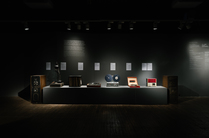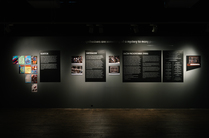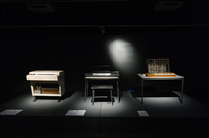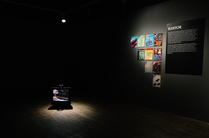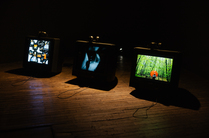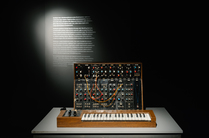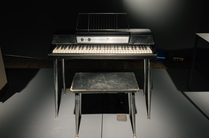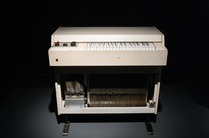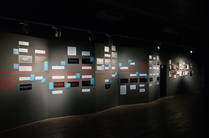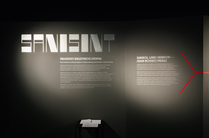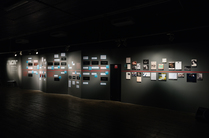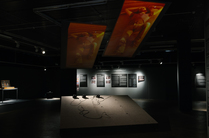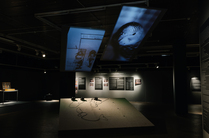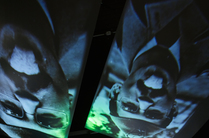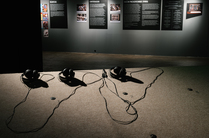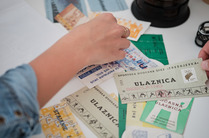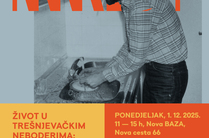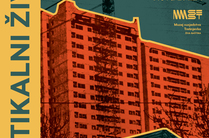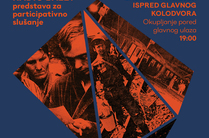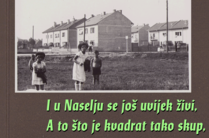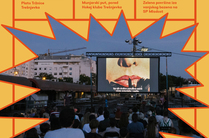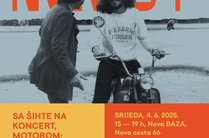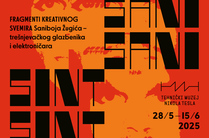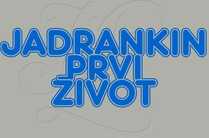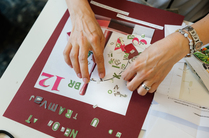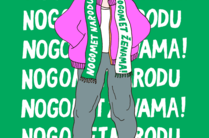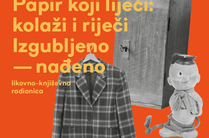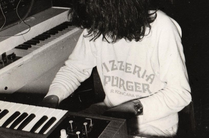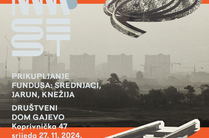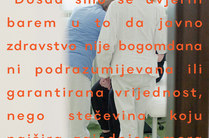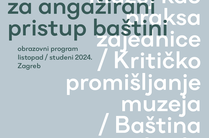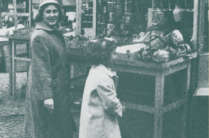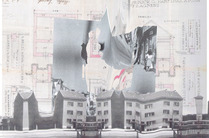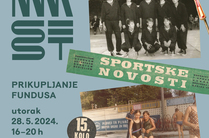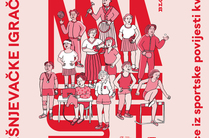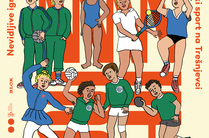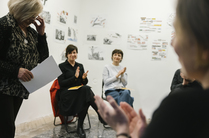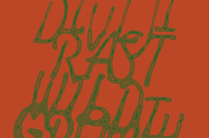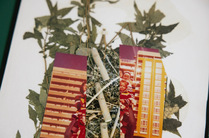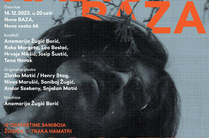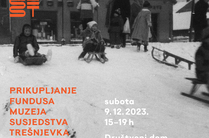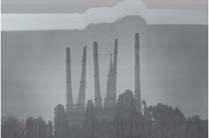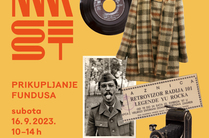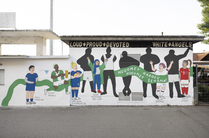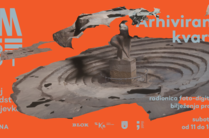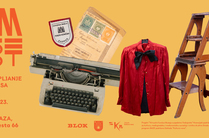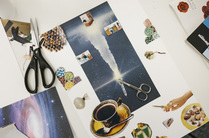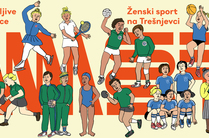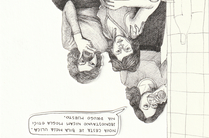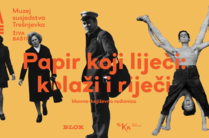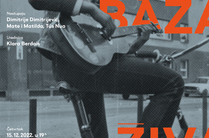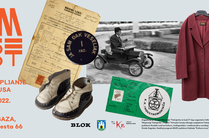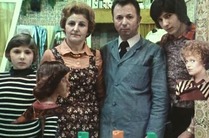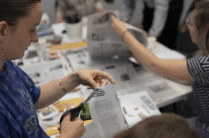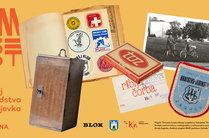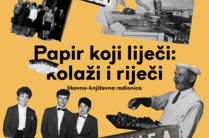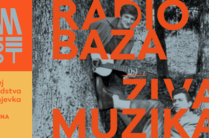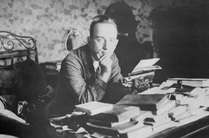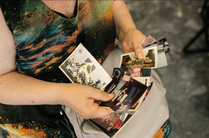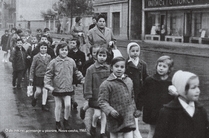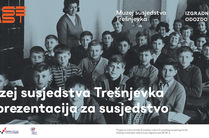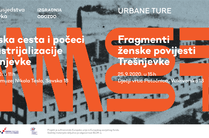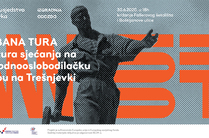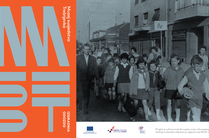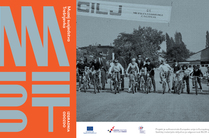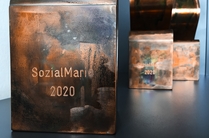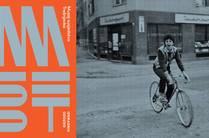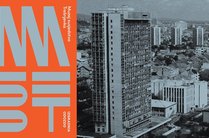SANISINT / Fragments of the creative universe of Saniboj Žugić, musician and electronics engineer from Trešnjevka

SANISINT / Fragments of the creative universe of Saniboj Žugić, musician and electronics engineer from Trešnjevka
May 28 – June 15, 2025
Technical Museum Nikola Tesla, Savska cesta 18
Opening hours: Tuesday – Friday: 11 am – 7 pm, Saturday and Sunday: 11 am – 3 pm
Team of authors: Anamarija Žugić Borić, Ana Kutleša, Srđana Vrsalović, Višeslav Laboš, Damir Prizmić, Ivan Klisurić
Organized by: BLOK
We started working on the heritage of Saniboj Žugić in the beginnings of BLOK's long-term project Trešnjevka Neighbourhood Museum. His daughter Anamarija Žugić Borić had spoken about Saniboj with BLOK member Barbara Gregov in 2019 and presented and played his music as part of the Radio BAZA podcast. A few years later, she contributed to the virtual collection of the Museum by submitting photographs and belongings that were left behind by Saniboj. What followed was a gig in the Nova BAZA space (in December 2023), in which Anamarija, together with five other musicians, performed music from one of the rare preserved tapes from Saniboj's archive, featuring Saniboj playing music himself. The ensemble gathered again in February this year, for the workshop that took place at the Trešnjevka Cultural Centre, where they performed, together with the workshop participants, the composition "Storm" from the same tape.
Saniboj Žugić (1951 – 2002), musician and electronics engineer from Trešnjevka, worked on the margin throughout his life. Although he was engaged in music from early on, he didn’t release anything during his life. There is only one mention of him, an acknowledgement on the cover of an album by the band "Stop". However, his contribution to the music scene extended far beyond performing. Saniboj’s apartment in Končareva street was the musical soul of the neighborhood from the early ‘70s until the end of the ‘80s. It was a place where his rich vinyl collection was played on equipment that matched the standards of professional studios. He both repaired and built the equipment himself. He tuned musical instruments, and he built Sanisint, the modular synthesizer, based on schemes from the Elektor Magazine. Sanisint is still being used and is definitely the most valuable artifact from his heritage.
This exhibition reflects Saniboj’s approach to music in the multitude of intentions and fragmentation of the content. Playing with boundaries of visibility and verifiability, we present the findings we have collected during conversations with his contemporaries through the years, at the same time calling attention to their occasional disputability. We present Sanisint, the way in which it was constructed and how it has been used up until today, but we are also aware that many aspects of this instrument and the way in which it works remain to be clarified. We emphasize the importance of relationships and mutual impacts, and we particularly point out the relevance of electronics engineers, repairmen, and equipment engineers from the mid 20th century onward.
Through the accompanying program, we open the space for contemporary music creation and contemporary experimenting at the intersection of music and technology. Our partner in this project, the Radiona association, will organize a synthesizer building workshop, and the partnership with the Technical Museum Nikola Tesla, which (still) does not possess a collection of instruments, opens the topic of care for the 20th century music heritage. We will look into this aspect in particular in the forum organized by our associated partner, the Institute of Ethnology and Folklore.
PROGRAM / TECHNICAL MUSEUM NIKOLA TESLA (IN EXHIBITION SETUP)
May 28 / 8 pm / opening /Hamatri Revival Band concert (Anamarija Žugić Borić, Hrvoje Nikšić, Josip Šustić, Tena Novak, Roko Margeta, Leo Beslać)
June 7/ 11 am / workshop / Radiona DIY Synth (Organized by: Radiona)
June 12 / 7 pm / panel: Is there an ear for music heritage? (Organized by: the Institute of Ethnology and Folklore)
SIDE PROGRAM / Nova BAZA (Nova cesta 66)
June 4 / 3 – 7 pm / collecting material for the virtual collection of the Trešnjevka Neighborhood Museum
June 10 / workshop on community archives, led by: Vlatka Lemić (Organized by: the Institute of Ethnology and Folklore)
Entrance to all programs is free of charge! If you wish to participate in a workshop, please send a request at blok@blok.hr.
IMPRESSUM
Team of authors: Anamarija Žugić Borić, Ana Kutleša, Srđana Vrsalović, Višeslav Laboš, Damir Prizmić, Ivan Klisurić
Project coordinator: Ana Kutleša
Visual identity and setup designed by: Ivan Klisurić and Damir Prizmić
Audio installation and Audio content prepared by: Višeslav Laboš
Texts authors: Ana Kutleša, Srđana Vrsalović, Anamarija Žugić Borić
Lighting and video by: Luka Matić
Sanisint photographs by: Luka Pešun
Setup collaborators: Hrvoje Đukez, Dario Stilinović
Data processing and analysis collaborator: Katarina Lapaš
Materials made available by: Anamarija Žugić Borić, Vesna Žugić, Hrvoje Nikšić, Damir Prđun, Zlatko Matić, Igor Mihovilović
Concert sound engineers: Goran Egić and Robert Martinović
TMNT coordinator: Kosjenka Laszlo Klemar
Produced by: BLOK, within the project "Saniboj, Electro-pioneer from Trešnjevka" / Trešnjevka Neighbourhood Museum – live heritage
Partners: Technical Museum Nikola Tesla (TMNT), Radiona.org
Associated partner: Institute of Ethnology and Folklore, within the project Traditional Culture in the Digital Environment: development of the Referential Center for Intagible Culture (TKuDOR)
Thank you: Hrvoje Nikšić, Damir Prđun, Vesna Žugić, Vesna Gmaz Luški, Zdenko Simonić, Tomislav Gaži, Tihomir Preradović, Damir Filipović, Mladen Garašić, Zlatko Matić, Ante Perković, MSU, Ivan Jakić, Udruženje hrvatskih arhitekata, Coma stereo, Tobogan, Hrvoslava Brkušić, Studio Pangolin, Hana Jušić, Kinorama, Kozmodrum, ManGroove, Šumovi protiv valova, Filter Production, Šumski, Zvuk Močvare
Supported by the City of Zagreb. BLOK’s annual program for 2025 is supported by the Kultura nova foundation.
